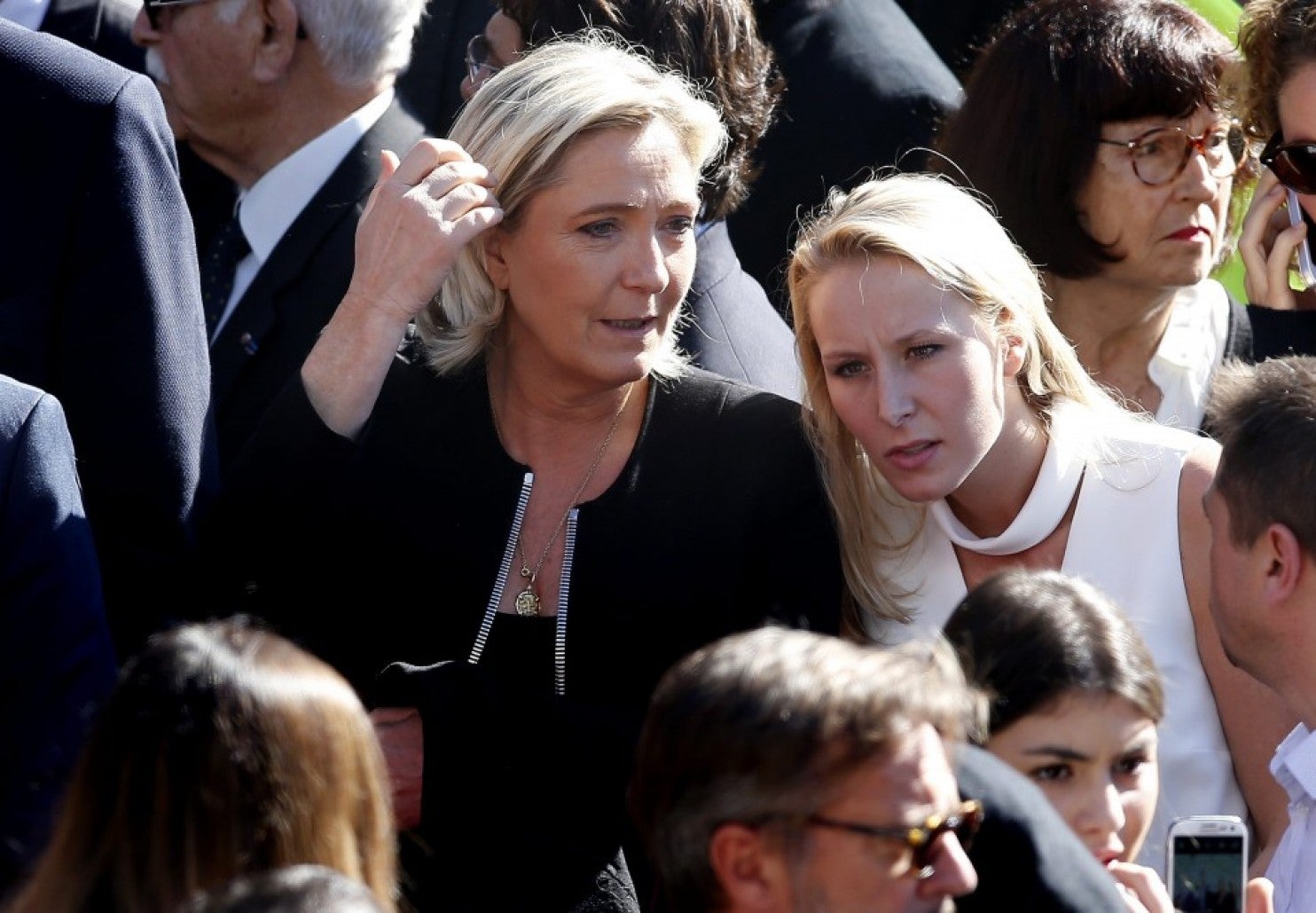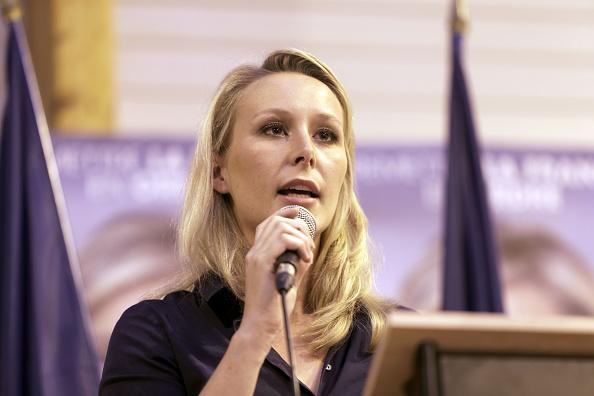Marion Le Pen could be new face of Front National to capture younger voters
Her aunt Marine Le Pen has conceded defeat, but has vowed to transform her movement and come back in full force

Your support helps us to tell the story
From reproductive rights to climate change to Big Tech, The Independent is on the ground when the story is developing. Whether it's investigating the financials of Elon Musk's pro-Trump PAC or producing our latest documentary, 'The A Word', which shines a light on the American women fighting for reproductive rights, we know how important it is to parse out the facts from the messaging.
At such a critical moment in US history, we need reporters on the ground. Your donation allows us to keep sending journalists to speak to both sides of the story.
The Independent is trusted by Americans across the entire political spectrum. And unlike many other quality news outlets, we choose not to lock Americans out of our reporting and analysis with paywalls. We believe quality journalism should be available to everyone, paid for by those who can afford it.
Your support makes all the difference.Before the final results had even been announced in the French Presidential election, Marine Le Pen would have already been thinking about her next move in the political sphere - and who might replace her.
In a speech that was most likely written in anticipation of defeat to Emmanuel Macron and his En Marche! movement, Ms Le Pen vowed on Sunday evening to transform the Front National for the parliamentary elections in June.
"It's the choice between patriots and globalists that will be in front of the voters in each district in the parliamentary elections," she said.
During very uncertain times in politics, Ms Le Pen's personal road to L'Elysee could be nearing its end.
After stepping down as party leader last month to widen its appeal before the election, it is yet to be seen whether Ms Le Pen will take back the reigns. The presidential election result will be seen as a reaction to Donald Trump in the US and Brexit in the UK, and a sign that, for now, France has committed itself to the European project.
Ms Le Pen also said on the eve of her defeat that she would be forming a "new political group".
Her niece, Marion Marechal Le Pen, an up-and-coming star and also another family rival, told daily newspaper L’Opinion that a 40 per cent support would be a “huge victory” for the National Front.
Le Front National supporters have looked increasingly to the 27-year-old, who was elected an MP in 2012 and who holds more extreme views than her aunt, as the right-wing "rock star" who could lead France to a Frexit. Her leadership could recruit more support given as 44 per cent of voters between 18 and 24 years old opted for the right-wing party.
Whether or not the party will be led in the near future by a younger generation, critics could wonder whether history is simply repeating itself.
It has been 15 years since her father, Jean Marie Le Pen, came close to victory after winning the so-called premier tour in the 2002 election, but he lost the second round and his daughter took over the party reins, distancing herself and the party from his anti-Semitic comments.
As the faces of leadership pass down the family line, the party's ideas remain largely the same.
Writer and historian Tim Stanley tweeted that the Front National has descended from the “racist right”.
“It's not just measured in the odd slip of the tongue or a party official who defends the denial of the Holocaust, it is in the FN's very DNA,” he said.
“It is a fascist party. Where it now stands on precisely who should be deported is irrelevant. That is what it is - and conservatives of good conscience who understand it cannot I believe support it.”
The dynamics that brought Ms Le Pen to near-victory and are far from over, a positive sign for her niece.

France has been labelled the “sick child of Europe” due to its poor economic backdrop, and the population has been driven to political extremes. Anti-Muslim marches have been taking place for years, and a growing number of French people are concerned about the influx of immigrants and the refugee crisis.
Ms Le Pen garnered praise from some quarters for identifying with women by being pro-choice and pro-equal rights, but her anti-Islamic rhetoric, her promise to clamp down on immigration and ban the burqa received strong condemnation in a country that only 70 years ago paired up with the Nazi regime.
Yet it took Mr Macron just three years to enter government as Francois Hollande’s finance minister and rise to the top job, becoming the country’s youngest ever President.
Supporters will wonder why Ms Le Pen lost at a time when much of Europe and the US has seen growing right-wing support, and why she lost to a man who has never held an elected post, and whose movement has never fielded a single candidate in a local or national election.
While some people vow her reign is over, others speculate that many voters did not want to choose Mr Macron and his pro-business polices may act as a springboard for the hard-right in future.
The day after Ms Le Pen’s crushing defeat in the 2017 French Presidential election is Victory in Europe Day.
Seen through this lens, it is a bitter blow for Ms Le Pen, who called on her fellow 'patriots' to cast their vote for her and to emancipate their country from the supposed 'woes' of immigration and the European Union.
For her opponents, it will be seen as a day to celebrate the near-escape of Western Europe’s furthest right candidate becoming President - for now.
Join our commenting forum
Join thought-provoking conversations, follow other Independent readers and see their replies
Comments